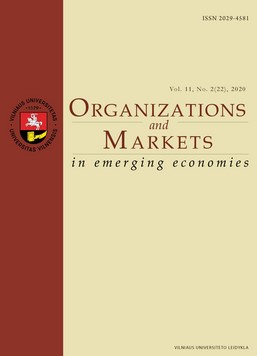The Effect of Financial Performance and Innovation on Leverage: Evidence from Indonesian Food and Beverage Sector
The Effect of Financial Performance and Innovation on Leverage: Evidence from Indonesian Food and Beverage Sector
Author(s): Perdana Wahyu SantosaSubject(s): National Economy, Business Economy / Management
Published by: Vilniaus Universiteto Leidykla
Keywords: leverage; assets structure; profitability; agency cost; innovation and technology; firm size;
Summary/Abstract: This article aims to investigate the determinants of firm’s capital structure (debt ratio) such as asset structure, profitability, agency cost, innovation and technology, and firm size as a moderating variable. This study used quarterly data from the financial statements of food and beverage firms at the Indonesia Stock Exchange with a purposive sampling method that met the research criteria with panel data analysis. The findings show that firm size and asset structure affect leverage positively; however, profitability and innovation and technology negatively affect the debt ratio, while agency cost does not affect leverage. All findings are in line with the hypotheses except agency cost. The firm size as a moderating variable shows strengthening of the interaction between agency cost and innovation with leverage. However, interacting with firm size weakens the effect of the relationship between assets structure and profitability with the debt ratio. Managerial implications of the target of debt ratio that creates the value of the firm need to be flexible and controlled by the interaction of the firm size with firm characteristics and innovation to achieve an optimal firm value of F & B sector.
Journal: Organizations and Markets in Emerging Economies
- Issue Year: 11/2020
- Issue No: 22
- Page Range: 367-388
- Page Count: 22
- Language: English

